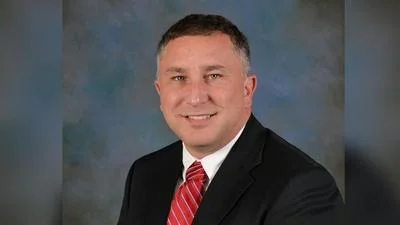Paul Boron and his mother, Leah McNally | Illinois Policy Institute
Paul Boron and his mother, Leah McNally | Illinois Policy Institute
A 13-year-old student at Manteno Middle School faces a possible felony conviction for violating a state eavesdropping law that critics call both extreme and indiscriminately applied, while officials would rather not talk about it.
A spokesperson for Jim Rowe, the Kankakee County State's Attorney, told the Kankakee Times they were not permitted to discuss cases involving juveniles, and calls to the Manteno School District and the two state lawmakers from the area, Sen. Toi Hutchinson (D-Chicago Heights) and Rep. Lindsay Parkhurst (R-Kankakee), were not returned.
In April, Rowe’s office charged the middle schooler, Paul Boron, with violating the eavesdropping law after he secretly recorded a conversation with Principal David Conrad and Assistant Principal Nathan Short about his skipping detention, according to a report by the Illinois Policy Institute (IPI).

Jim Rowe, Kankakee County State's Attorney
Ten minutes into the conversation, Boron reportedly told Conrad and Short that he was recording them, and Conrad ended the conversation by telling the student that he was committing a felony.
Violation of the law is a class 4 felony under the eavesdropping bill signed into law in December 2014 by hen Gov. Pat Quinn.
“If I go to court and get wrongfully convicted, my whole life is ruined,” Boron told IPI.
The 2014 law, similar to a previous one struck down by the Illinois Supreme Court because it “criminalized a wide range of innocent conduct,” drew immediate criticism from conservatives and civil libertarians.
One of those critics, Jacob Huebert, director of Litigation at the Liberty Justice Center, said that “exactly what we warned would happen did happen.”
“You would think this is something that should have been taken care of through the ordinary disciplinary process in the school,” Huebert said.
In a critique of the law published earlier by IPI, Huebert wrote that it violates due process.
“Because citizens often cannot know in advance whether recording a conversation is legal, the law is unconstitutionally vague,” he wrote. “And because the statute's vagueness will deter people from making recordings for fear of prosecution, it also frustrates free speech and violates the First Amendment.”
IPI reports that the Manteno district handbook does say that students are forbidden to record other students, but goes into no detail about recording teachers or administrators.
The changes the General Assembly made in the law to appease the Supreme Court permitted the recording of conversations with police. But an all-party consent provision in the old law stayed in the new one. Most states, and federal law, require just a one-party consent for a recording.






 Alerts Sign-up
Alerts Sign-up